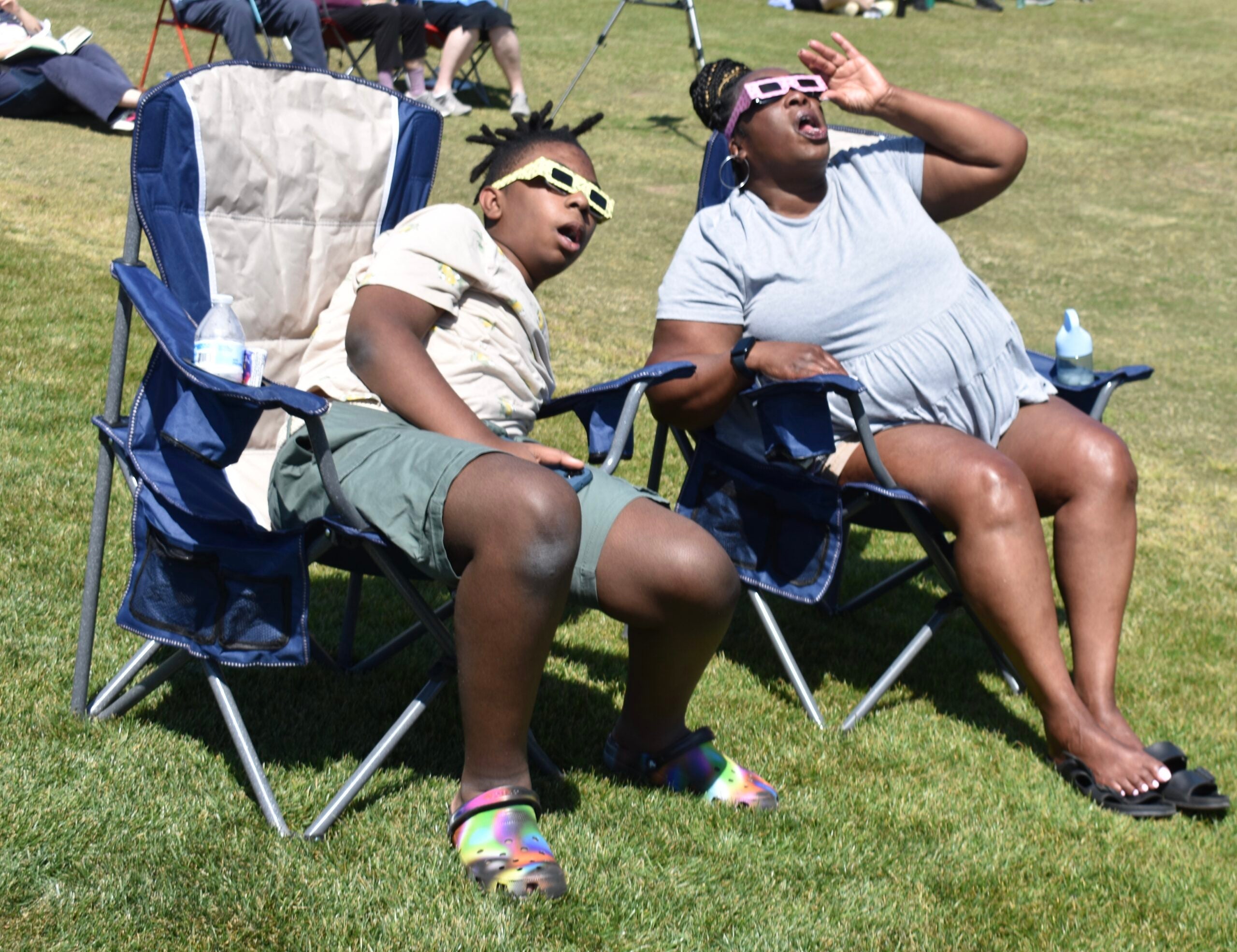Augusta University students, faculty and community locals gathered at Christenberry Fieldhouse’s Intramural Field to enjoy an eclipse viewing on Monday afternoon, April 8.
From 1:30 p.m. to 4 p.m., the university’s Physics Club hosted a large viewing party and allowed attendees to peek at the lunar eclipse through different telescopes.
According to co-presidents of the Physics Club, Lexi Dowdy and Evan Pate, an eclipse occurs on the rare instance when the moon passes in between the sun and the Earth.
Hoping to recruit more students to the club and get the general public interested in physics, Dean Meyer, involved in the club’s student leadership, said he hopes the event teaches more people to appreciate the significance of scientific wonders.
MORE: Column: The Masters Tournament: From near ruin to triumph
“Because this is the last eclipse until 2045, we really want to encourage people pursuing science, and this might be the last chance that some child in Augusta sees this and decides they want to become a physicist or an astronomer,” Meyer said. “An eclipse is a powerful way to instill that sense of curiosity in kids.”
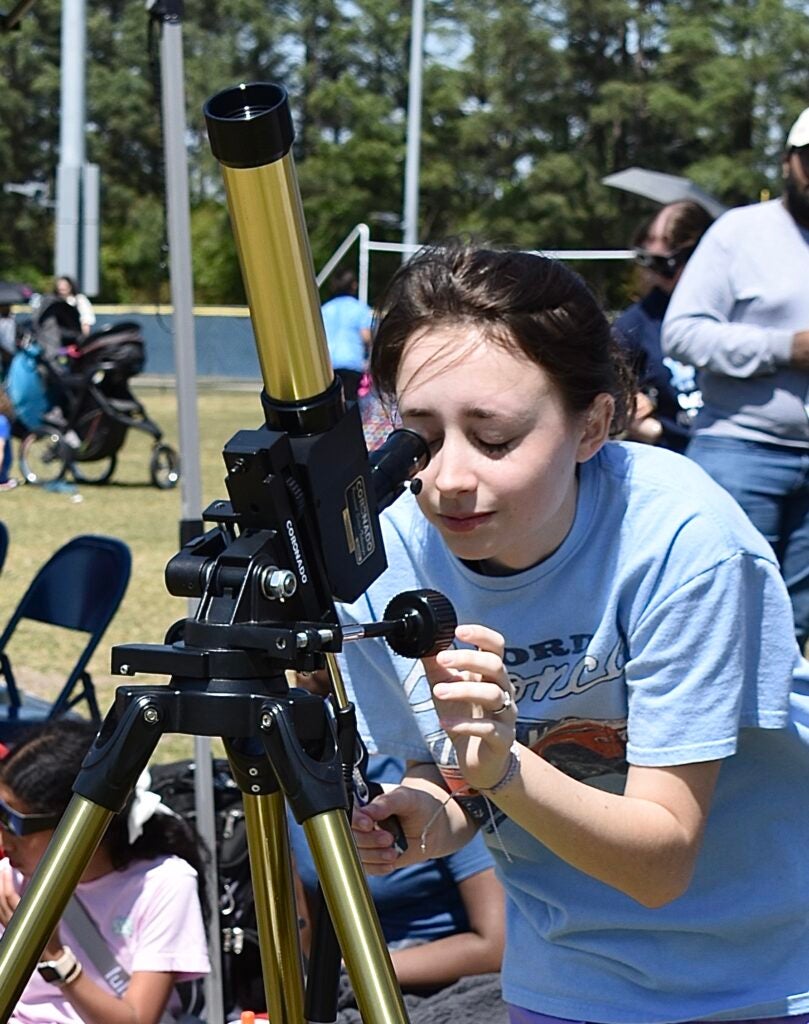
In a person’s day-to-day schedule, Meyer said he feels many walk through life unaware of how science and physics exist all around the world, and an eclipse serves as a great reminder for viewers.
“I think people don’t realize how physics is around you all the time,” he said. “… like what happens when you throw a ball or what happens when you jump – that’s all physics, you just don’t ever really think about it.”
To Dowdy, who loves eclipses and helped maintain telescope alignment throughout the event, sharing the university’s astronomy equipment encouraged more significant and memorable community interaction.
“It’s really cool to see a lot of the community come together like this,” she said. “It’s an event that doesn’t come around that often, so it’s good to spread the word so everyone can see it, because the physics behind it is really cool – how the sun and moon align to cast that shadow on Earth.”
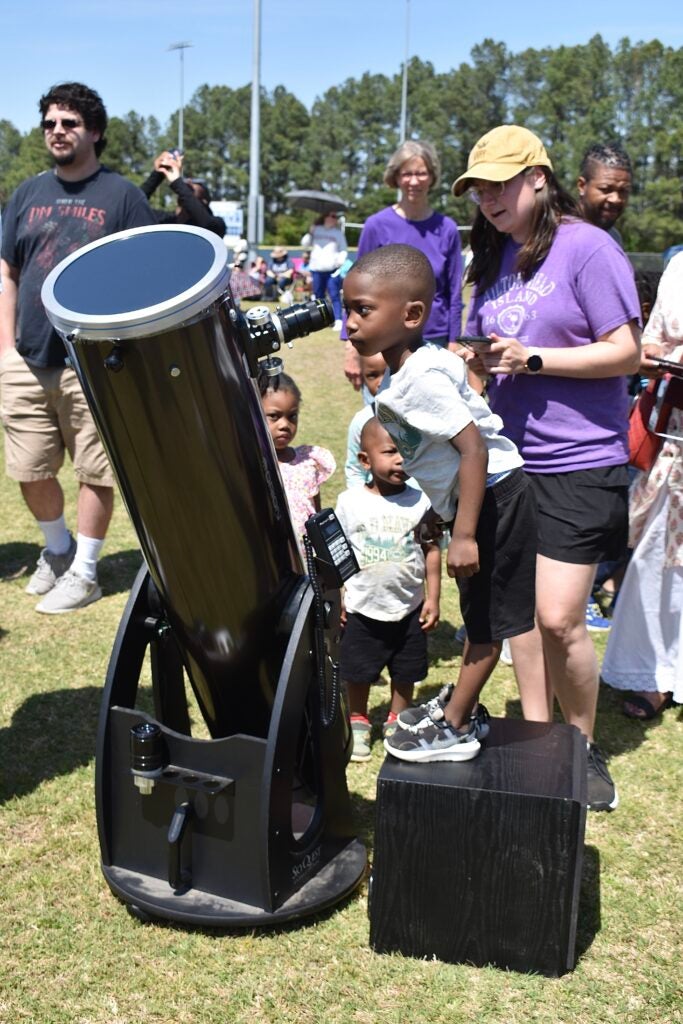
Pleased with the large event turnout, Dowdy said her and other members were glad they advertised the event to both Richmond and Columbia County.
“The Physics Club likes to do outreach, and we wanted to do another eclipse viewing on a bigger scale,” she said. “Since it’s spring break, we weren’t sure if a lot of people would show up, but we were hoping.”
Helping attendees navigate the telescopes, Pate said he enjoys educating fellow students and locals about the science behind the eclipse predictions and the real life example of why physics is important.
“We want to be able to promote curiosity in children and intellectual learning,” he said. “It’s important that children develop that mindset of wanting to see more … I just hope they walk away with a memorable experience.”
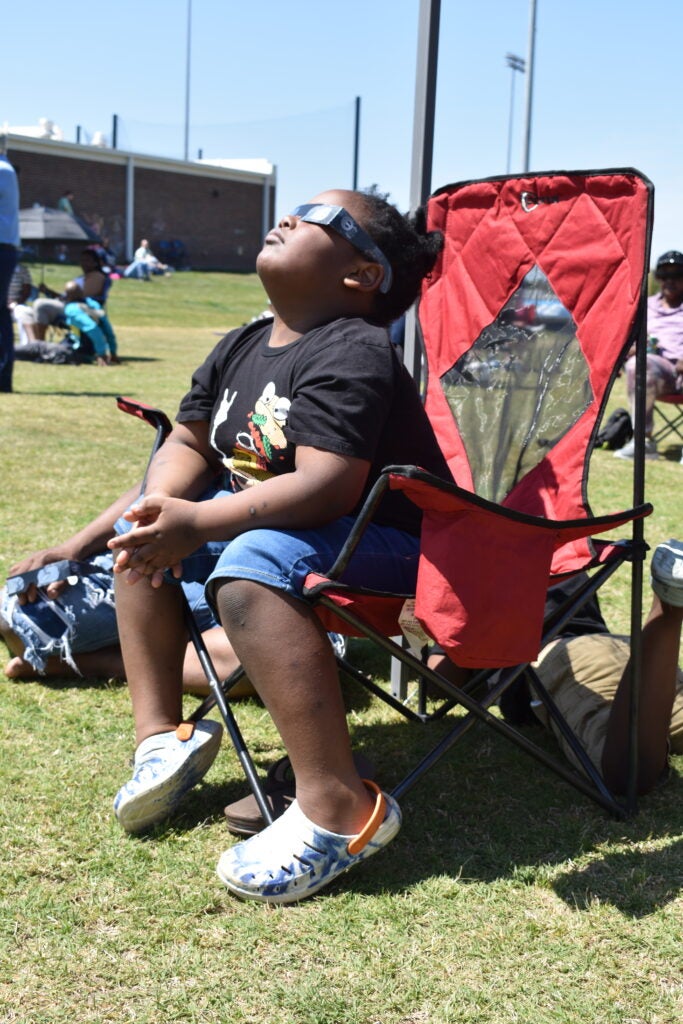
Pate also said truly viewing an eclipse in-person, versus seeing video or photographs later on, grounded the event’s significance, because it was no longer signified to children via informational pixels on a screen.
“To be able to come out here and actually see the moon in front of the sun is a big thing for a lot of people,” he said. “Actually visualizing and seeing it is important for children’s development.”
As free eclipse glasses were made available to the first 500 people, members from the club educated attendees, while friends and children excitedly waited for the peak of the eclipse.
With Augusta receiving about 80% coverage at approximately 3 p.m., several Columbia and Richmond County locals said they attended the event because of their personal interest in science.
“I wanted to experience the eclipse and be around other people who were interested in experiencing it,” said attendee Yolanda Jenkins-Wise. “I just love science and the mystery of nature.”
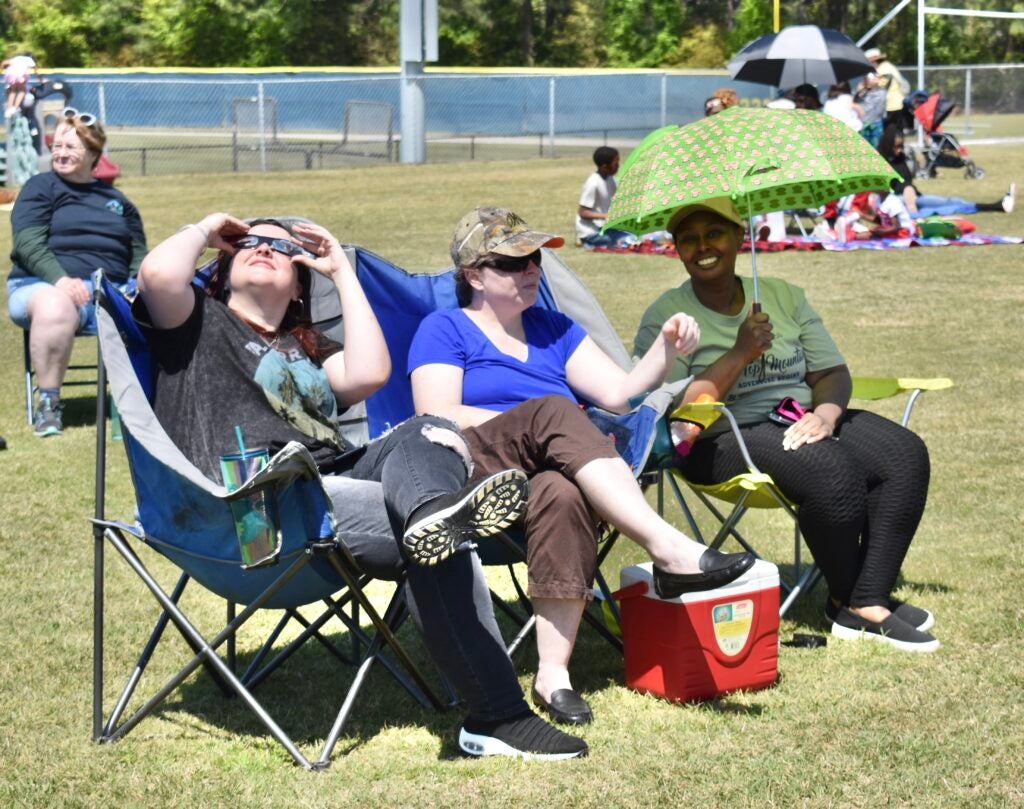
Jenkins-Wise also said it is important to hold community, family-friendly events because it encourages children to take a break from the internet and enjoy the sunny weather.
“Children are the future, and we need to get them involved in something other than just social media – something real,” she said. “Let them know that there’s other things out there in the world.”
While various people attended the gathering to marvel at the real-life science in the sky, some families said they attended to teach their children about Earth’s naturally occurring enigmas and to further interest them in science.
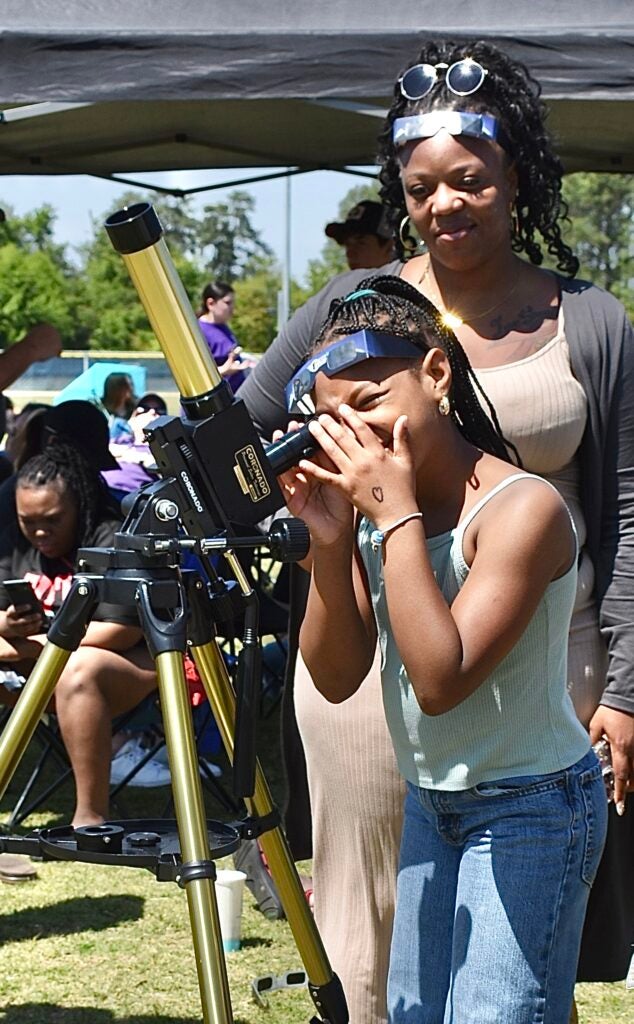
“We were just sitting at home and really wanted to see the eclipse, so we also came because it’s my daughter’s first time seeing one,” said attendee and parent Dejayla Bell.
Bell’s daughter Zoey said her favorite part was looking through the telescopes, because a particular red one allowed her to see the eclipse very clearly.
According to data provided by Time and Date, an online database that provides varying astronomy information, the next Total Solar eclipse will occur on Aug. 12, 2045, and will be visible in Augusta from noon to 2:41 p.m.

